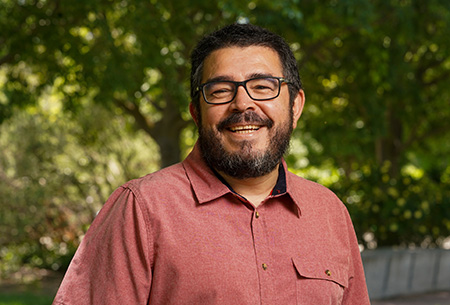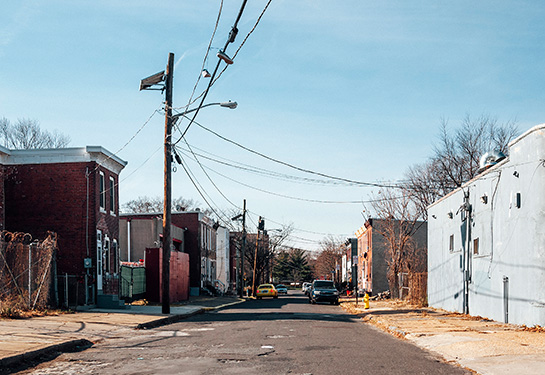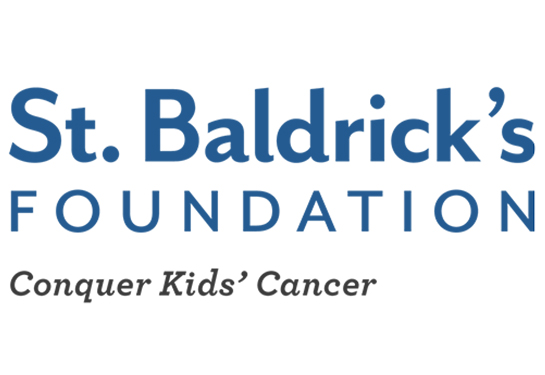Landmark NCI grant bolsters UC Davis cancer health equity research
Center for Advancing Cancer Health Equity to help investigate cancer risk caused by persistent poverty
The risk of dying from cancer is greatly influenced by your zip code. If you live in a poor neighborhood, you face cancer death rates that are 12% higher than if you live in a wealthy neighborhood.
UC Davis Comprehensive Cancer Center has long been aware of the cancer burden faced by these poorer communities. Now its research into the causes of cancer health disparities is receiving a major boost from the National Cancer Institute (NCI).
The Center for Advancing Cancer Health Equity is participating in the Persistent Poverty Initiative, the first federally funded program to address the cancer risks associated with chronic financial hardship.
The $50 million National Institutes of Health program is being coordinated by the NCI. There are five new Centers for Cancer Control Research in Persistent Poverty Areas being created, with Stanford University getting $15 million to form the UPSTREAM Research Center in Northern California.
The role of UC Davis
As part of the UPSTREAM Research Center, Stanford will partner with UC Davis and UCSF researchers to investigate whether and in what ways regular income supplementation for people living in poverty in several Northern California communities affect their health behaviors and cancer risk.

“Specifically, my team will assess how state and federal programs, such as guaranteed basic income or the earned income tax credit, affect cancer outcomes in Latino and Vietnamese communities in the Central Valley,” said Luis Carvajal-Carmona, the study’s principal investigator for UC Davis and the head of the cancer center’s Center for Advancing Cancer Health Equity. “We want to see if the basic income program and the earned income tax credit promotes the adoption of healthy behaviors related to reducing cancer risk.”
This is the first time that the three institutions have come together to study how increasing monthly incomes in poor neighborhoods might impact people’s health behaviors such as nutrition levels, smoking rates and other lifestyle choices. The five-year study utilizes the individual expertise of each university and leverages their relationships with organizations in their communities.
Understanding the cancer burden facing the poor
“This is an exciting opportunity to look at the root causes of the unfair cancer burden faced by impoverished communities,” said Carvajal-Carmona who is also the associate vice chancellor for the Office of Academic Diversity at UC Davis. “We know that there are inequities, such as food deserts where healthy food options are not readily available, that have a disproportionally high impact on health care patterns in areas where people are experiencing persistent poverty.”
Each of the persistent poverty centers works with targeted low-income communities to implement and measure the effectiveness of interventions for cancer control and prevention, follow-up care and survivorship. These centers will then conduct research in areas such as reducing obesity, improving nutrition, increasing physical activity, helping people quit smoking and improving living conditions through supplemental income.
In addition, the centers will help train a pipeline of early-career investigators to work with underserved communities in conducting multilevel intervention research. At UC Davis, a postdoctoral fellow works with Carvajal-Carmona to evaluate the impact of such multilevel intervention on cancer risk and outcomes in the region.
California’s approach
The California center will conduct an experimental study of the impacts of the largest anti-poverty policy program for families in the U.S.— the Earned Income Tax Credit (EITC), which helps low-income working families. Since 2015, for households earning up to $30,000 per year, the California EITC (CalEITC) and federal credits provide up to $10,000 a year.
Along with focusing on two Yolo County neighborhoods, there are two communities in Santa Clara County being studied.
The study is unique to California because it is one of only a few states to permit individuals without a social security number to file for the EITC, which will allow researchers to study the impact of the credit on working people who are not U.S. citizens or permanent residents.
By helping pay for daily expenses, food and housing, transportation and health care, the research tests whether the earned income credit reducing the stress of poverty may influence several risk factors for cancer.
The study also looks at the reasons why people who are eligible for an earned income credit are not applying, especially among newly eligible people in the Latino and Vietnamese communities identified in Yolo and Santa Clara counties.
“We expect that our program will add evidence to support advocacy and actions to address the structural and social determinants of health to promote colorectal cancer prevention and screening,” Carvajal-Carmona said.
Persistent poverty and cancer
Persistent poverty areas are defined as those where, for the past 30 years, 20% or more of the population has lived below the federal poverty line. People who live in such areas have a higher incidence of cancer, experience delays in cancer diagnosis and treatment and are more likely to die from cancer than people who do not live in poverty. However, there has been limited research on how to improve cancer outcomes in these areas.
“Persistent poverty is a place-based and community phenomenon that reflects a failure of the structures and institutions in society, including health care,” said Shobha Srinivasan, senior advisor for health disparities and health equity in NCI’s Division of Cancer Control and Population Sciences. “Conducting research to understand the connections between institutions — such as social, economic and health systems — and persistent poverty is the only way to inform changes to social conditions and determinants of health that will ultimately improve overall health, cancer control and cancer outcomes.”
California research team
The persistent poverty research lead investigators from Stanford include Melissa Bondy, chair of the Department of Epidemiology and Population Health, David Rehkopf director of the Stanford Center for Population Health Sciences, and David Grusky, professor of sociology and director of the Center on Poverty and Inequality. Robert Hiatt, the associate director of population sciences at UCSF’s Helen Diller Family Comprehensive Cancer Center, is also a principal investigator.
UC Davis Comprehensive Cancer Center
UC Davis Comprehensive Cancer Center is the only National Cancer Institute-designated center serving the Central Valley and inland Northern California, a region of more than 6 million people. Its specialists provide compassionate, comprehensive care for more than 100,000 adults and children every year and access to more than 200 active clinical trials at any given time. Its innovative research program engages more than 240 scientists at UC Davis who work collaboratively to advance discovery of new tools to diagnose and treat cancer. Patients have access to leading-edge care, including immunotherapy and other targeted treatments. Its Office of Community Outreach and Engagement addresses disparities in cancer outcomes across diverse populations, and the cancer center provides comprehensive education and workforce development programs for the next generation of clinicians and scientists. For more information, visit cancer.ucdavis.edu.




